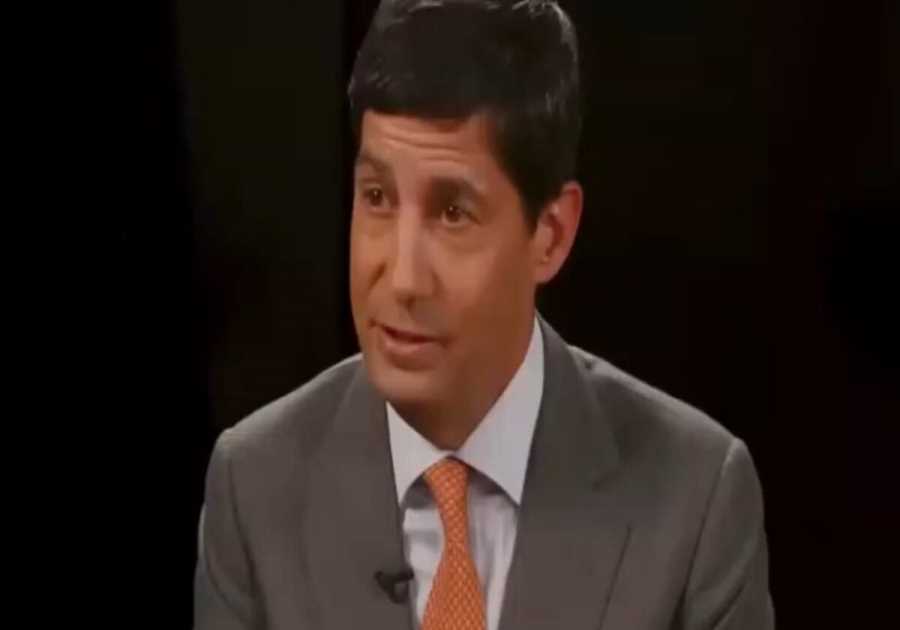
A nation without borders isn't a nation. Full stop.
Every functional country on Earth maintains borders. Every one. Canada, Australia, Germany, Japan—they all control who enters and exits. They enforce immigration law. They know who's in their country. This isn't controversial anywhere except here.
But we're told that enforcing our borders is cruel. We're told it's xenophobic. We're told we're supposed to choose between compassion and security. That's a false choice. And it's designed to make you feel guilty for believing in basic national sovereignty. Don't fall for it.
Listen to the Article
What Border Security Actually Is
Let's be precise about language. Border security means the government controls who enters the country and maintains the rule of law regarding immigration. It means you follow legal procedures if you want to live here. It means the government knows who's inside American territory.
This is the baseline expectation for any functioning nation-state. Not ambitious. Not harsh. Baseline.
When borders aren't controlled, specific things happen. First, you lose sovereignty. The government doesn't know what's happening in its own territory. Second, you lose the rule of law. If immigration law isn't enforced, which laws actually matter? All of them become optional. Third, you create incentives that encourage more illegal entry and more dangerous journeys. Smugglers get richer. Vulnerable people get exploited. That's not compassion. That's chaos.
The Constitutional Foundation
The Constitution gives Congress explicit power over immigration and naturalization. Article I. That's not a suggestion. That's enumerated authority. The Framers understood that controlling borders and deciding who becomes a citizen is fundamental to national sovereignty.
The federal government doesn't just have the authority to control borders. It has the duty. This is a core governmental responsibility. When presidents, whether through inaction or deliberate policy, abandon this responsibility, they're not being progressive. They're being negligent.
Here's what I want to make clear. When you don't enforce immigration law, you're telling citizens that laws don't matter. You're telling people that you can just ignore federal statute and there are no consequences. Then people wonder why the rule of law is breaking down. It's not complicated. You don't enforce a major category of federal law, and suddenly all laws seem optional.
The Real-World Consequences
Picture this. You're a Border Patrol agent in Arizona. You've been at this for fifteen years. You joined to protect the country. Now your leadership's telling you to step back. Don't stop people. Don't process people. Just let them through. You watch drug cartels move fentanyl across your sector. You watch human trafficking networks operate with impunity. You feel like you're failing at the one job you signed up to do. That's not hypothetical. That's the lived experience of Border Patrol agents right now. I've talked to them. They're frustrated. They're demoralized. And they know their hands are being tied deliberately.
The practical consequences are documented. Drug trafficking increases when borders aren't secure. That's not an opinion. That's fact. The DEA reports it. Local law enforcement reports it. Fentanyl deaths have skyrocketed in the past five years. That's connected to border control.
Human trafficking increases. Criminal organizations operate more openly. Unvetted individuals enter the country, and we have no way of knowing who they are, where they're from, or what they intend. We can't run background checks if we don't know who's entering.
The economic impact is real too. Schools in border communities are overwhelmed. Emergency rooms struggle with surge capacity. Housing costs increase because of demand. These aren't abstract concerns. They're documented impacts on actual communities. People living on the southwest border know this firsthand.
The Humanitarian Argument Nobody Talks About
Here's something that gets overlooked. Border security is humanitarian. Not opposed to it. Humanitarian.
When borders are porous and smuggling networks flourish, vulnerable people get hurt. Children are put in dangerous situations. Women get victimized. People die crossing deserts. That happens because there's a profitable criminal industry moving undocumented people. If we had legal ports of entry, if we had orderly processes, if we had controlled borders, we'd reduce that exploitation dramatically.
A legal immigration system protects people more effectively than chaos. When there's a clear legal pathway, people don't need coyotes. When borders are controlled, smuggling networks become less profitable. When you reduce demand for illegal smuggling, you reduce the abuse of vulnerable people. That's how compassion actually works.
Countries like Canada and Australia have strict immigration systems. Are they considered heartless? No. They're considered functional. They welcome immigrants through legal channels. They also know who's in the country. They control their borders. They maintain sovereignty. And somehow, this is compatible with being generous and welcoming.
What Controlling Borders Looks Like
Physical security at the border. Barriers, technology, personnel. Not because we hate anyone. Because we maintain borders like every other nation.
Enforcement of immigration law. That means detention and deportation when people enter illegally. Not as punishment. As consequence. As law.
Legal immigration pathways. Clear procedures. Efficient processing. Make it possible for people who want to come here to do it legally. That reduces incentive for illegal entry.
Employer sanctions. If you knowingly hire illegal workers, there are consequences. This addresses the demand side of the equation. Why would people risk dangerous journeys if there were no jobs waiting?
Cooperation with local law enforcement. Border control isn't just a federal issue. States and cities can participate. They can enforce local laws related to immigration.
None of this is harsh. This is what most nations do routinely.
The Problem With Abandoning Borders
When you abandon border security, you're not showing strength. You're showing weakness. You're telling the world that American law doesn't apply to American borders. You're telling criminal organizations that there's profit to be made. You're telling vulnerable people that dangerous journeys are worth the risk because someone will let them through.
I didn't think about this angle until I talked to Border Patrol agents who explained the smuggler operations. These aren't compassionate people helping desperate immigrants. These are criminal enterprises charging thousands of dollars per person, sometimes putting thirty people in a van in one-hundred-degree heat, sometimes selling women into trafficking situations. They exist because there's profit. There's profit because borders aren't enforced. It's a direct line.
The Real Path Forward
We need border security. We need it now. Not in five years. Now. Physical barriers. Technology. Personnel. Resources. That means money. That means political will.
We need states that have sanctuary policies to reconsider them. You're not protecting immigrants. You're protecting criminal networks and making your own communities less safe.
We need legal immigration reform. The current system is broken. But that means fixing it through law, not abandoning all enforcement.
We need employers held accountable. If you're knowingly hiring illegal workers, there should be consequences.
And we need to be honest about what we're choosing. Either we have borders or we don't. Either we have immigration law or we don't. Either we maintain sovereignty or we don't. You can't have it both ways.
Why This Matters
Border security is foundational. Without it, you can't have rule of law. You can't have sovereignty. You can't protect your citizens. Everything else depends on this baseline being functional.
We should be generous. We should welcome people through legal channels. We should create immigration policies that serve both immigrants and citizens. But that all requires that we first secure our borders and establish that immigration law matters.
That's not cruelty. That's governance. That's what every functional nation does. And it's time we did it.






